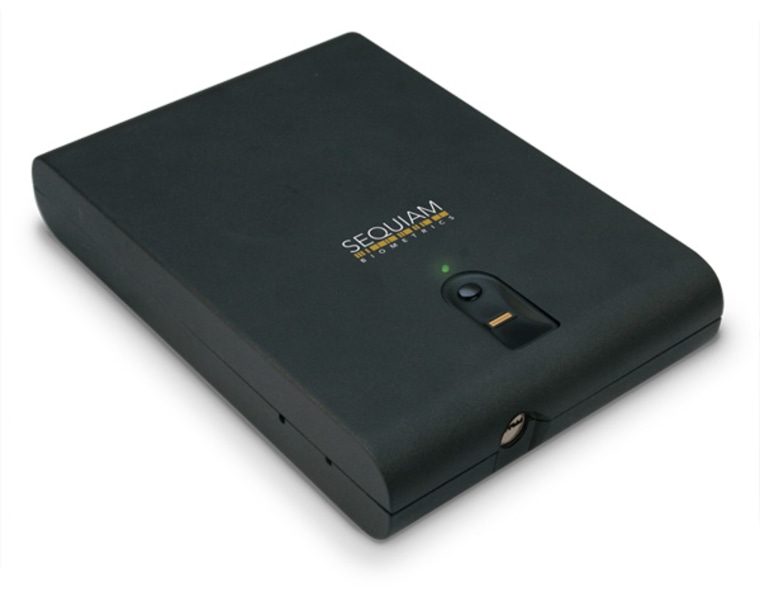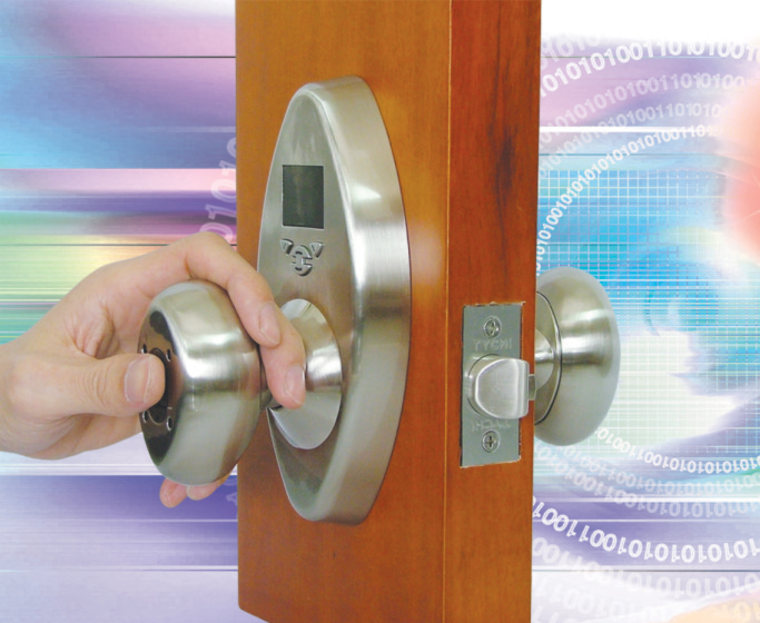I used to constantly misplace my keys. I spent time every other morning trying to find them. It drove me nuts.
But why even bother with keys? Codes can open doors. Even easier, so can your finger.
It sounds like something from a spy movie, but the notion of replacing your regular lock with one that features fingerprint access is starting to become a reality for consumers.
The LA9-3 Fingerprint Lock by Adel ($189), for example, is a stand-alone, battery-operated lockset that can be programmed for up to 120 users (if your house is like Grand Central Station).
The fingerpad is easily visible, unlike the one in the slick SmartScan Biolock ($197), made by Kwikset.
It looks like a regular deadbolt lock, but has a scanner built in, hidden beneath the keyhole, where you swipe your finger. The scanner records “the sub-dermal fingerprint data and converts it into a mathematical formula unique to the user,” according to the company, and keeps that data intact, even if you cut your finger.
Some include audit trail software
Many of these models come with audit trail software, which enables you to monitor the comings and goings of those whose fingerprints are approved for access.
The Shepherd DL220AT Fingerprint Lock ($499) is one such model. Like other keyless, codeless locks, it runs on batteries. Luckily, the memory of the fingerprints does not fade away if the power goes out.
Most of these systems have a key or code override, should your print not pick up for some reason.
The simplest-looking lock may be one of the priciest, too. The BioKnob Fingerprint Door Knob Lock ($599), by Tychi Systems, replaces existing doorknobs and has a sensor built into the knob.
Brush your finger on the sensor, turn the knob — and enter. The IBM thermal sensor doesn’t just use the image of the fingerprint. Gary Kut, spokesman for Tychi, says the BioKnob also includes scan thermal imaging, where the difference between the temperature of the finger's peak and valleys are recorded. It’s something that’s unique to each individual, he said.
The system has no back-up/override key function. In Kut’s view, having a key attached to a biometric security system makes it vulnerable to crafty crooks.
Kut think it's only a matter of time before biometric locks become the norm.
"The prediction is that biometric locks will be to the security industry what cell phones are to the communications industry," he said.
Fingerprints have been used as a means of identification in criminal cases for more than a century, and the military and public agencies have realized the value of fingerprints for identification.
Members of the Armed Forces used to dip their hands in ink for identification purposes. Now, ink for fingerprinting isn’t necessary, with fingerprints being directly scanned into computers.
Analysts can now use sophisticated computer programs to quickly line up those loops, whorls and arches.
At "Child Check" programs around the country, parents take their kids to be identified this way, in case they ever go missing.
Not only for the front door
Biometric locks aren’t only for the front door. They’re also handy for replacing passwords. Can you imagine, no more having to remember passwords or change them every few months?
Software such as SAFsolution Enterprise Edition is open system, meaning the hardware can be either fingerprint or iris recognition, or something better, when and if it comes along.
Laptops (Dell, HP, Lenovo) now come with the biometric software built in, or you can buy a device like the XMmicro Biometric USB Fingerprint Notebook Laptop Guard ($35) or the Veridt Biohub Biometric Security CF Card ($184).
And those who have valuables to hide can use fingerprint scan-based safes, such as the GVB-2000 Gunvault Biometric (Fingerprint) Pistol Box ($299).

The BioVault ($329), by Sequiam Identity Management, is another line that specializes in lock boxes to store jewelry, indispensable documents and other items.
The sleek Sequiam BioBox Biometric Fingerprint Safe (retail, $300) allows for 1,000 openings of the safe, and for up to six users to access it. The safe retains fingerprints even after the batteries have been changed.
Being prone to spy-cool technology, I love the idea that came about a few years ago, the Retinasafe-18.
Installed on the dashboard, this device starts your car after scanning your retina and iris. The car’s system retained “eyeball memory.”
I don’t know whether it’s still around anymore, but from what I can tell, cars that start using someone’s eyes hasn’t become commonplace — not even in the movies.
Having just bought a new car, I’m still giddy over using a remote button to unlock it. I don’t even need to insert a key into the ignition to start it. But, I still need my key fob and if I lose it, I risk a chance of losing my car, too.
I’m much better about keeping track of my keys now, but on the odd occasion, I’m still misplacing them. I love the idea of biometric technology, because it uses my body as its key —and that’s one thing I know I can’t misplace.
